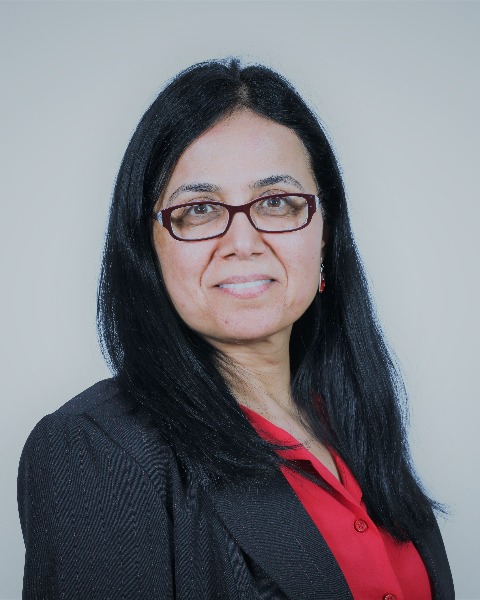Use and Influence of Evaluation
Making your evaluation count! Leveraging approaches, tools, and techniques to engage users and promote use
-

Bilquis Khan, MSc, MBA, MSc (she/her/hers)
Evaluation Fellow
Centers for Disease Control and Prevention (Division of Workforce Development), United States -

Bilquis Khan, MSc, MBA, MSc (she/her/hers)
Evaluation Fellow
Centers for Disease Control and Prevention (Division of Workforce Development), United States -
JG
Jasmine Gaillard, MPH
Evaluation Fellow
Centers for Disease Control and Prevention (Division of Workforce Development), United States -
JG
Jasmine Gaillard, MPH
Evaluation Fellow
Centers for Disease Control and Prevention (Division of Workforce Development), United States -
CM
Caitlin McColloch, MDP
Health Scientist/Program Evaluator
Centers for Disease Control and Prevention (Division of Workforce Development), United States -
CM
Caitlin McColloch, MDP
Health Scientist/Program Evaluator
Centers for Disease Control and Prevention (Division of Workforce Development), United States -

Sarina Juma, MPH (she/her/hers)
Health Scientist/Program Evaluator
Centers for Disease Control and Prevention (Division of Workforce Development)
Atlanta, Georgia, United States -

Sarina Juma, MPH (she/her/hers)
Health Scientist/Program Evaluator
Centers for Disease Control and Prevention (Division of Workforce Development)
Atlanta, Georgia, United States
Presenter(s)
Author(s)
Presenter(s)
Author(s)
Presenter(s)
Author(s)
Presenter(s)
Author(s)
Location: White River Ballroom F
Abstract Information: Evaluators often possess the power to create a synergistic effort in connecting programmatic and evaluation activities. This quality presents an opportunity for evaluators to enhance engagement in evaluation activities and ensure use of the findings. The Centers for Disease Control and Prevention (CDC)’s Division of Workforce Development (DWD) implements fellowships and training opportunities to contribute to a competent and diverse public health workforce. This panel of evaluators will share their insights in engaging program staff in valuing evaluation findings to improve programmatic activities. Presenters will highlight how utilization-focused evaluation and reflective evaluative thinking have been crucial in consolidating evaluation evidence, maximizing facilitation skills in evaluation use-driven meetings, organizing data parties, and using follow-up action plans to apply findings. Examples will narrate opportunities, challenges, and potential resolutions in using evaluation findings to improve public health fellowship processes and outcomes. Attendees will learn practical strategies to incorporate utilization-focused evaluation in their own professional practice and evaluation stories.
Relevance Statement: Utility is the first standard in CDC’s Framework for Program Evaluation in Public Health (Centers for Disease Control and Prevention [CDC], 1999). This standard focuses on serving the intended users and ensuring that their information needs are met. To be effective, a utilization-focused evaluation must identify primary intended users, understand how the intended users plan to use the evaluation, and leverage this knowledge to plan evaluations that maximize the applicability, relevance, and use of the evaluation. Essentials of Utilization-Focused Evaluation provides a checklist of 17 steps to guide evaluators on how to effectively incorporate utility through the evaluation process (Patton, 2013). This session focuses on three steps of the checklist, namely “14. Organize and present the data for interpretation and use by primary intended users,” “15. Prepare an evaluation report to facilitate use and disseminate findings to expand influence,” and “16. follow up with primary intended users to facilitate and enhance use.” Early engagement of intended users in evaluation activities promotes use of the findings and increases likelihood that recommendations will be implemented. At DWD, evaluation activities always seek to involve intended users early in the process to create actionable and feasible recommendations from the evaluation findings. We have found that having discussions on feasibility of implementing recommendations and lessons learned has yielded productive outcomes. This session is relevant to evaluators who seek examples, tools, and strategies for engaging intended users in understanding and acting upon evaluation findings and recommendations. The American Evaluation Association (AEA) Guiding Principles provide information that contribute to the professional practice for evaluators and are accessible on the association website (American Evaluation Association, n.d.). This panel is guided by AEA principles that emphasize the evaluator’s role in respecting people and supporting the common good and equity through their evaluation practice. Evaluators bring together persons of different cultures, intentions, and motives and ask them to work together to form a shared understanding for the evaluation. Evaluators should be transparent about their decisions and methods while choosing designs and tools that support everyone’s engagement in a way that honors their backgrounds and balances their perspectives. An array of interpersonal skills, ethics, and contextual understanding is required to successfully navigate and facilitate forums for evaluation participants to fully engage with the data, with each other, and contribute to meaningful evaluation stories. References Centers for Disease Control and Prevention. (1999). Framework for program evaluation in public health. Morbidity and Mortality Weekly Report. 48(RR-11), 27. Patton, M. Q. (2013). Utilization-focused evaluation (U-FE) checklist. Retrieved from https://wmich.edu/sites/default/files/attachments/u350/2014/UFE_checklist_2013.pdf Guiding Principles for Evaluators. (n.d.). American Evaluation Association. https://www.eval.org/About/Guiding-Principles
Presentations:
-
4:15 PM - 5:15 PM ETDon't forget about the evaluation findings! Use of a follow-up action plan
Presenter: Sarina Juma, MPH (she/her/hers) – Centers for Disease Control and Prevention (Division of Workforce Development)
Presenter: Jasmine Gaillard, MPH – Centers for Disease Control and Prevention (Division of Workforce Development)
Presenter: Caitlin McColloch, MDP – Centers for Disease Control and Prevention (Division of Workforce Development)
Presenter: Meagan Davis, MPH – CDC
-
4:15 PM - 5:15 PM ETLet's get this party started! Using data parties to craft effective evaluation stories
Presenter: Caitlin McColloch, MDP – Centers for Disease Control and Prevention (Division of Workforce Development)
Presenter: Omoshalewa Bamkole, MPH – Centers for Disease Control and Prevention (Division of Workforce Development)
-
4:15 PM - 5:15 PM ETNavigating the evidence: A story of evaluating a comprehensive public health workforce applicant recruitment strategy
Presenter: Bilquis Khan, MSc, MBA, MSc (she/her/hers) – Centers for Disease Control and Prevention (Division of Workforce Development)
Presenter: Omoshalewa Bamkole, MPH – Centers for Disease Control and Prevention (Division of Workforce Development)
-
4:15 PM - 5:15 PM ETNot your typical meeting — leveraging facilitation techniques to maximize evaluation use
Presenter: Jasmine Gaillard, MPH – Centers for Disease Control and Prevention (Division of Workforce Development)
Presenter: Sarina Juma, MPH (she/her/hers) – Centers for Disease Control and Prevention (Division of Workforce Development)
Presenter: Caitlin McColloch, MDP – Centers for Disease Control and Prevention (Division of Workforce Development)
Presenter: Meagan Davis, MPH – CDC
